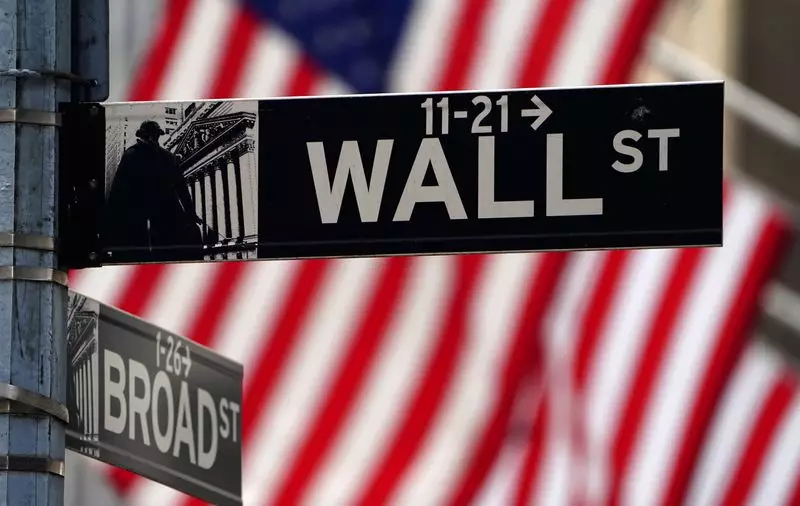As we approach the closing hours of 2024, Wall Street shows signs of resilience and resurgence, continuing a bullish trajectory that has been apparent for over two years. Influenced by various economic indicators and technological advancements, major indexes such as the S&P 500, Dow Jones, and Nasdaq have demonstrated remarkable stability, nearing record highs. The robust performance of these indices signifies a growing sense of optimism among investors, buoyed by post-pandemic economic recovery and the anticipated benefits of innovations in artificial intelligence (AI).
The potential for reduced borrowing costs has been a crucial factor propelling the markets upward. A substantial interest rate reduction of nearly 100 basis points by the Federal Reserve in 2024 has made capital more accessible, thereby stimulating economic activity and boosting investor confidence. This, combined with a notable rally in technology stocks fueled by expectations of heightened corporate profitability linked to AI advancements, has significantly contributed to market gains.
Technology Stocks Lead the Charge
Technology stocks have been at the forefront of this market rally, with sectors such as communication services and consumer discretionary showing impressive growth, exceeding 30% in value this year alone. Companies like Nvidia have become symbols of this technological renaissance, with a staggering 170% increase in share price this year, reaffirming its status as a leader in the AI landscape. Nvidia’s market value recently crossed the $3 trillion threshold, signaling investor confidence in its future growth prospects.
Tesla, another powerhouse in the tech sphere, managed to reclaim the coveted $1 trillion market valuation, demonstrating a strong recovery after previous fluctuations. On the morning of the last trading day of the year, futures indicated a positive opening for the Dow and S&P 500, with slight upticks reflecting ongoing investor enthusiasm, despite thin trading volumes typically seen during the holiday season.
The political landscape has also played a pivotal role in shaping market conditions. The victory of Donald Trump in the recent presidential elections has revitalized market sentiment with hopes that his administration will follow through on promises to ease regulations, slash taxes, and implement protective tariffs. This optimism has particularly invigorated small-cap stocks, with the Russell 2000 index reaching record highs and recording nearly a 10% annual increase.
However, it’s essential to note that the markets encountered some turbulence in December, suggesting that investor sentiment is not entirely unscathed. A higher yield on Treasury notes, coupled with stretched equity valuations, raised concerns. Consequently, the S&P 500 appears on track for its largest monthly decline since April—a clear reminder of the underlying uncertainties regarding future economic policies. The yield on the benchmark 10-year Treasury note currently stands at approximately 4.5%, continuing to tie closely with inflationary fears and potential interest rate adjustments by the Fed.
Looking forward, market analysts remain cautious. As stated by industry experts, including Raffi Boyadjian from brokerage firm XM, market gains may be stunted until clearer insights into the incoming administration’s tax and tariff strategies become available. Furthermore, investors are particularly focused on how earnings expectations will evolve in the dynamic tech sector, especially concerning AI stocks.
Speculation surrounding future Federal Reserve rate cuts is also prevalent, with traders anticipating the first reduction to take place in either March or May 2025. This information is critical for investors, as it could influence market movements and sentiments significantly.
Interestingly, the current market dynamics have given a new lease of life to cryptocurrencies. Following Trump’s electoral success, the cryptocurrency market witnessed an upswing, with Bitcoin surpassing the significant $100,000 threshold. Companies like MicroStrategy, which have heavily invested in Bitcoin, showed impressive share price increases, reflecting a growing acceptance of cryptocurrency as a legitimate asset class. Other crypto-related stocks, including Coinbase and Marathon Digital Holdings, also made notable gains, highlighting a burgeoning interest in digital currencies.
In contrast, certain segments of the market are grappling with decline, particularly material stocks, which have suffered over 2% due to economic challenges in major consumer markets like China.
While Wall Street’s robust performance in 2024 is indicative of a broader recovery, the landscape remains complex. The interplay between economic policies, technological advancements, and investor sentiment will dictate the trajectory of markets as they step into a new year.

